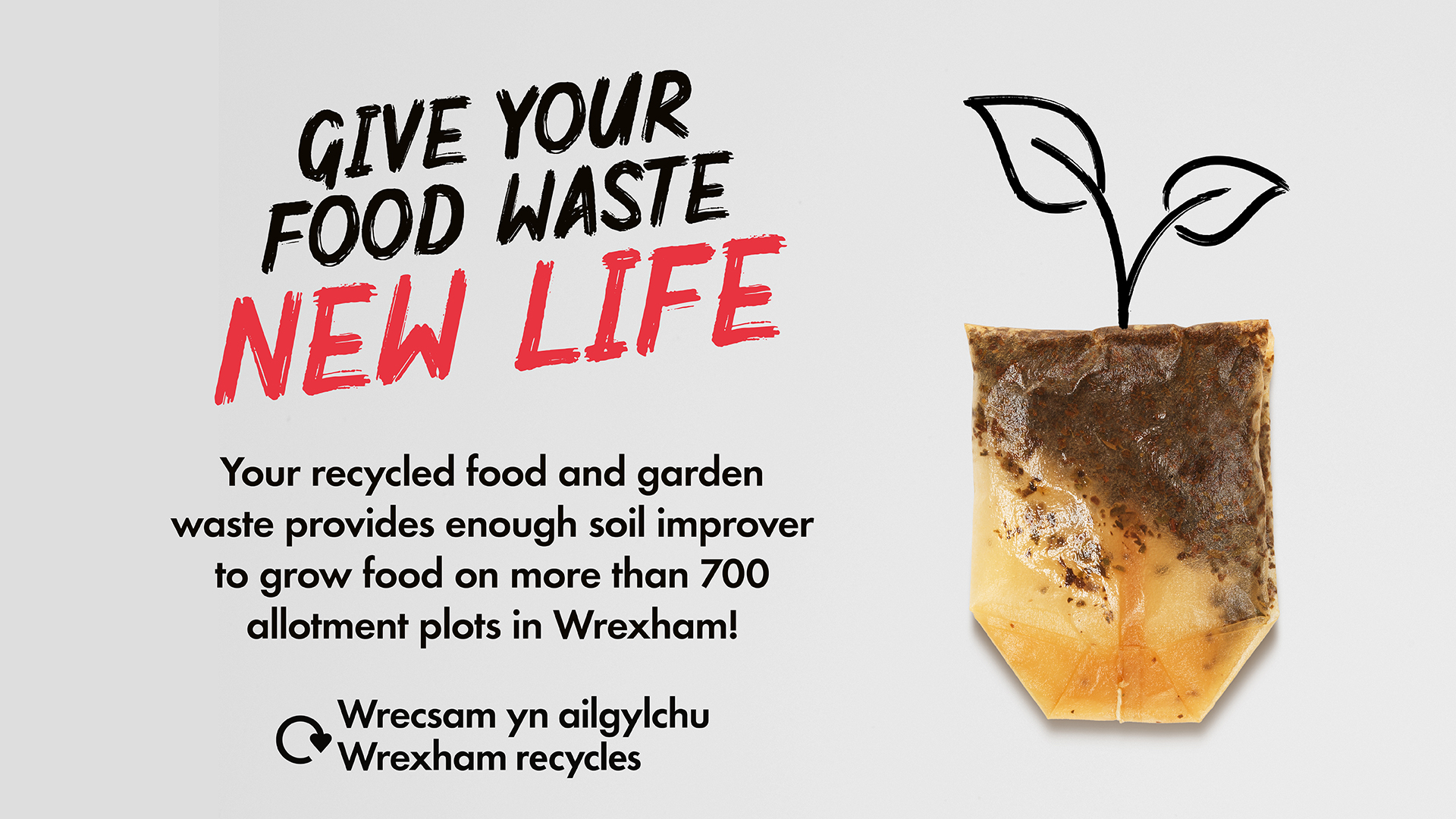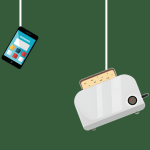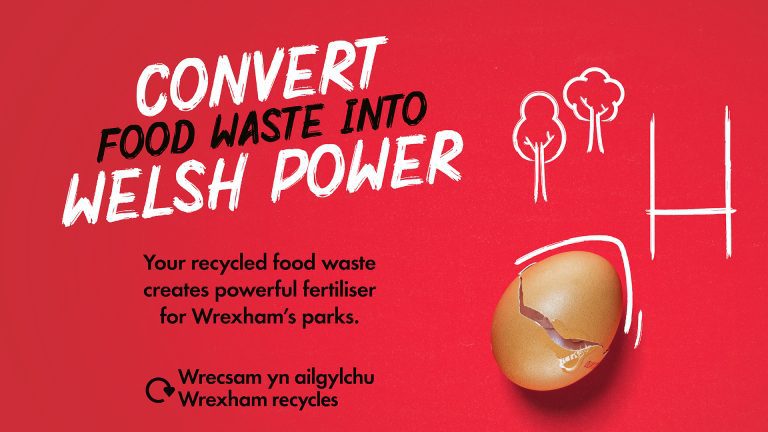Wales may be a small country, but when it comes to recycling, we punch way above our weight. With 95% of us regularly recycling our waste, we’re already the third best recycling nation in the world, and now we’ve teamed up with Wales Recycles to support their Mighty Mission to Wales get to number one.
That’s why, we’re calling on our residents to ramp up their efforts when it comes to food waste recycling.
Whilst almost all Welsh citizens recycle everyday items such as cardboard, bathroom toiletries, and plastic bottles, many are still not recycling all their food waste. In fact, around a quarter of what’s in the general rubbish bin is still food, all of which could be recycled.
WRAP Cymru’s research revealed the ‘yuck factor’ (or ‘ych-a-fi factor’ in Wales) is the biggest barrier, with people being put off by potential smells, leaks and spills. However, what many people don’t realise is that recycling our food waste creates fewer smells and is more hygienic than putting it in the bin. The content of our food waste caddies is collected every week, whilst our non-recyclable waste is collected less frequently.
We all produce some amount of unavoidable food waste – such as eggshells, bones, teabags and peelings – which should be recycled.

Follow Wales Recycles’ 5 handy tips:
1. Use a caddy liner – Lining your kitchen caddy will keep your food waste contained, helping to reduce smells and spills, and preventing it from getting mucky. Apply liners to a clean, dry caddy, and ensure you don’t overfill them to avoid splitting.
2. Avoid liquid items – Keep liquids such as milk, juice, or cooking oil out of your caddy to prevent ‘bin juice’ from collecting at the bottom.
3. Empty your food waste caddy regularly – Empty the contents of your kitchen caddy into your outdoor food waste bin regularly, before it gets too full, to prevent smells and odours. Remember to tie caddy liners tightly before moving them from your caddy to your bin. Should your caddy start to smell, then it’s time to empty its contents into your outdoor food waste bin and start afresh with a new liner.
4. Keep a lid on it – It may seem obvious but closing the lid of your kitchen caddy will stop flies getting in, and odours getting out. Don’t forget to also close the lockable lid on your outdoor bin securely, to prevent pests and safeguard against windy weather.
5. Keep your caddy clean – Clean your kitchen caddy every few weeks. Give it a rinse in the sink. For a more thorough clean, disinfect your caddy with leftover hot water from your kettle and some washing up liquid.
If you’ve got a leftover lemon that will otherwise be uneaten, you could run its flesh against the inside of your bin. It’s a natural odour remover and will help to kill any germs that might be lurking.
Missed bin collection? Let us know quickly and easily online.
[button color=”” size=”large” type=”square_outlined” target=”new” link=”https://myaccount.wrexham.gov.uk/en/service/Report_a_missed_waste_collection”] REPORT A MISSED BIN [/button]









